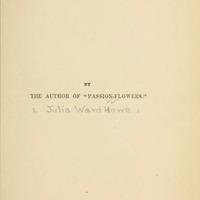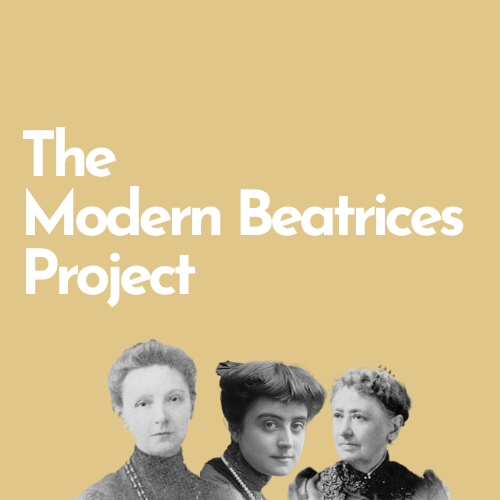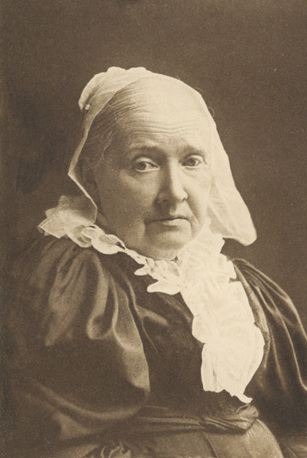Person
Ward Howe, Julia (1819-1910)
- Title
- Mrs. Julia Ward Howe
- Full Name
- Ward Howe, Julia (1819-1910)
- Lifespan
- May 27, 1819 – October 17, 1910
- Country of origin
- United States of America
- Language
- English
- Occupation
- Poet
- Campaigner for women's education
- Founder of the Women's Educational and Industrial Union in Boston
- President of the Association for the Advancement of Women.
- Campaigner for women's rights
- President of the New England Woman Suffrage Association
- American Woman Suffrage Association
- Periodical contributor
- New York Review; Theological Review
- Periodical editor
- Woman's Journal
- Short biography
-
Julia Ward was born in New York City on May 27, 1819. She was the fourth of seven children. Her father Samuel Ward III was a Wall Street stockbroker, banker, and strict Calvinist Episcopalian. Her mother was the poet Julia Rush Cutler Ward, related to Francis Marion, the "Swamp Fox" of the American Revolution. She died during childbirth when Howe was five.
Howe was educated by private tutors and schools for young ladies until she was sixteen. Her eldest brother, Samuel Cutler Ward, traveled in Europe and brought home a private library. She had access to these books, many contradicting the Calvinistic view. She became well-read, though social as well as scholarly. She met, because of her father's status as a successful banker, Charles Dickens, Charles Sumner, and Margaret Fuller.
She attended lectures, studied foreign languages, and wrote plays and dramas. Before her marriage, Howe had published essays on Goethe, Schiller and Lamartine in the New York Review and Theological Review.
Her first volume of poetry, Passion-Flowers was published anonymously in 1853. Howe's being a published author troubled her husband greatly, especially due to the fact that her poems many times had to do with critiques of women's roles as wives, her own marriage, and women's place in society. Their marriage problems escalated to the point where they separated in 1852. Howe's writing and social activism were greatly shaped by her upbringing and married life.
She was inspired to write "The Battle Hymn of the Republic" after she and her husband visited Washington, D.C., and met Abraham Lincoln at the White House in November 1861.
She helped found the New England Women's Club and the New England Woman Suffrage Association. She served as president for nine years beginning in 1868. In 1869, she became co-leader of the American Woman Suffrage Association. Then, in 1870, she became president of the New England Women's Club. After her husband's death in 1876, she focused more on her interests in reform. In 1877 Howe was one of the founders of the Women's Educational and Industrial Union in Boston. She was the founder and from 1876 to 1897 president of the Association of American Women, which advocated for women's education.
In 1872, she became the editor of Woman's Journal, a widely-read suffragist magazine founded in 1870 by Lucy Stone and Henry B. Blackwell. In 1881, Howe was elected president of the Association for the Advancement of Women.
Howe died of pneumonia on October 17, 1910, at her Portsmouth home, Oak Glen at the age of 91. She is buried in the Mount Auburn Cemetery in Cambridge, Massachusetts.
After her death, her children collaborated on a biography, published in 1916. It won the Pulitzer Prize for Biography. In 1987, she was honored by the U.S. Postal Service with a 14¢ Great Americans series postage stamp. - Selected List of Publications
- (1857) "Dante" in Words of the Hour. Boston: Ticknor and Fields.
-
 "Dante"
"Dante"
- Is polite society polite? and other essays
- Link to external sources
- Julia Ward Howe - Wikipedia
- Resource class
- Person
Portsmouth, Newport County, Rhode Island, Stati Uniti d'America
New York, Stati Uniti d'America
Part of Ward Howe, Julia (1819-1910)
Annotations
There are no annotations for this resource.
Position: 26 (182 views)


